Today is the Feast Day of Saint Faustina, the Divine Mercy saint. Jesus spoke with her time and time again over several years with a single purpose, a single mission for her:
Reveal His Mercy–what it means and how we can obtain it.
Today, we make a common mistake in what we think “mercy” is.
That common error is simply this: We think and speak as if Mercy = Forgiveness.
Do your children think this? Do you think this? That God’s mercy is simply “forgiving and forgetting”–that’s the “Divine Mercy” Jesus took such efforts to reveal to Saint Faustina?
Remember that Jesus told her, “I am longing to send My Mercy to all souls! Before I come as the Just Judge, I am coming first as the King of Mercy.”
Does Jesus mean that somehow these roles–King of Mercy and Just Judge–are opposed to each other…and, if not, how do they fit together??
It all depends on the proper understanding of “mercy”–a much broader understanding than we commonly have.
Let’s think through this, step-by-step, bringing together a lot of things we know as Catholics.
If this mercy is only forgiveness of sins, then consider the following:
Why is “forgiving all injuries” just ONE of the FOURTEEN works of mercy? How do the Corporal and Spiritual Works of Mercy “fit” together…and in such a way that “forgiveness” is just a part–perhaps even a small part?–of mercy…that forgiveness, quite frankly, does NOT fully define what “mercy” truly is?
I recall a class many years ago with Professor Douglas Bushman when I was studying theology. In that class we were reading carefully through Pope Saint John Paul II’s encyclical Dives in Misericordia (“Rich in Mercy”). What he said opened my eyes, making clear a much more complete understanding of “mercy” (and especially what God reveals in Scripture about mercy and what Jesus was trying to reveal to Saint Faustina).
I contacted him recently to refresh my memory as we were creating our children’s book Works of Mercy: How God’s Love Transforms Your Heart (always good to find an excuse to get back in touch and thank people who made a lasting impact on your life, isn’t it?).
What he emailed back to me was so clear and logical a refresher that I’ll insert it nearly verbatim below, with minimal editing [with some musings that come to my mind in these brackets].
Mercy is love. [specifically, it is how GOD loves–to Him love is not “sentiment” or “affection” or an emotion: it is an ACTION.]
FIRST, then: what is “love”? To love is to desire the good for someone else [straight from Saint Thomas Aquinas there: we mean the real good, not “good = pleasure” as the world promotes] and to do what you can to make that good a reality. [love is what you DO, not what you FEEL, and it is directed to accomplishing as well as you can what is truly the best for another person.]
Mercy is the type of love (willing and acting) when the person for whom you will this good is SUFFERING.
SECOND: What do we mean by “suffering” and what causes it? Suffering is caused by evil. Evil is the absence of good. Suffering is feeling the negative effects of evil, the lack of the good that should be there. [the good that God desires to be there–the good that comes from God, the good that God intended for mankind from the creation of the world, the good that God made all of us to experience]
So: Mercy is love when that love actively strives to fill the absence of a good…with that good. [that’s the reason Jesus came to earth, isn’t it? To restore us in the image and likeness of God, so that “our joy could be complete,” to fill us to overflowing with the grace that Adam’s sin lost for us, to correct all the suffering caused by the Fall?]
Now all those “works of mercy” make sense, even the spiritual ones, don’t they? Some examples:
- Someone experiencing the evil of hunger (absence of nutrition) –> mercy is “feeding the hungry”
- Someone is lonely (absence of friendship) –> mercy is “comforting the sorrowful” or companionship
- Someone is in error (absence of truth) –> mercy is “instructing the ignorant” to give knowledge to fill what’s missing
- Someone is sinning (absence of seeking God’s Will and living in accordance with His Design) –> mercy is “admonishing the sinner” so they can have the joy God desired for them by living His Will as a human person made in His image & likeness
Prof Bushman brought this together, summarizing of the Parable of the Prodigal Son, which is the parable of mercy Jesus gave us:
When we talk about relationships (the most important and highest good) [remember: GOD in Himself is a relationship of love in the Father, Son, and Holy Spirit!], MERCY IS LOVE THAT KEEPS LOVING [loving = acting to bring good where it is absent] EVEN WHEN THAT LOVE IS REJECTED.
The Prodigal Son couldn’t even see how BIG mercy is! His definition of mercy is too small, so all he wants is food and a job and to be treated as a hireling. But his father sees the TRUTH and his mercy consists of all the actions to restore him to that truth, which is his sonship–which also restores the father to his TRUE RELATION with his son! [The evil that affected BOTH sides of the relationship are “filled” with the proper good that was missing; the evil was overcome and both were transformed back into the truth and the goodness of their relationship.]
So, we see that mercy = God’s way to loving (as a father) which is MUCH MORE than forgiving & forgetting: it is actively filling all the voids caused by evil with good!
Therefore, MERCY ≠ FORGIVENESS, but MERCY > FORGIVENESS…forgiveness being just one work of mercy for when an injury has been done to you (“forgive all injuries”).
The Works of Mercy are more than compassion or “feeling sorry” for someone, but are the ways we humans can try to love as God loves. When God loves: HE CHANGES THINGS. HE OVERCOMES EVIL AND FILLS IN WHATEVER GOOD IS LACKING…so that the evil (the “lack”) is GONE!
Jesus asks us to actively take part in overcoming evil, in transforming suffering of all kinds (evils of the body, mind, and soul, what is lacking in our health, our intellect and reasoning powers, our faith and our moral lives), and we can see how this sort of love transforms not just the “lovee,” but the “lover,” as well!
Now doesn’t that explain what Jesus was saying about “coming first as the King of Mercy” and THEN coming as the “Just Judge”? These roles are not in conflict but in succession, because first through His Mercy Jesus will TRANSFORM us, so that when He comes in justice…He finds us already transformed into a “new creation” which is no longer suited only to live and love in a fallen world, but which is now suited to live and love in HEAVEN! He will have made us into beings which are–in justice–fit for Heaven! Thank you, Jesus!



Prof Bushman helped us get this lesson on the true understanding of mercy into our book and all our products to help you teach and inspire your children to love like God loves by practicing the 14 Works of Mercy. In the book we also reveal “Mercy in the Holy Mass” and how to pray the Divine Mercy chaplet, and why Jesus called the Confessional His “Tribunal of Mercy” where “the greatest miracles take place” (yep: where He actually sends Grace to transform us into creatures suited to Heaven).
The Works of Mercy book (just click on the image below) shows Jesus performing the work alongside an illustration of how a child can perform it, too, with short explanations about each work. Lots of Scripture, too. (Note: there are deep bulk discounts so you can get it for an entire class, school, parish for less than $5 a book.) We dedicated the book to Saint Teresa of Calcutta and Saint Faustina, since they are two saints who embody the corporal and spiritual works of mercy. Glory Stories volume 4 includes the true stories of both these saints in dramatized audio format (perfect for driving in the car or as a bedtime story). We’ve got a lot of downloadable coloring pages for the littles, too (and captions that will generate a lot of conversation).


May God bless you and yours with His Merciful Love!
Latest posts by Ken (see all)
- Yesterday: We Received this Email - May 8, 2024
- We are raising the price (but telling you first) - May 2, 2024
- Prepare for Lent with this Novena - February 5, 2024

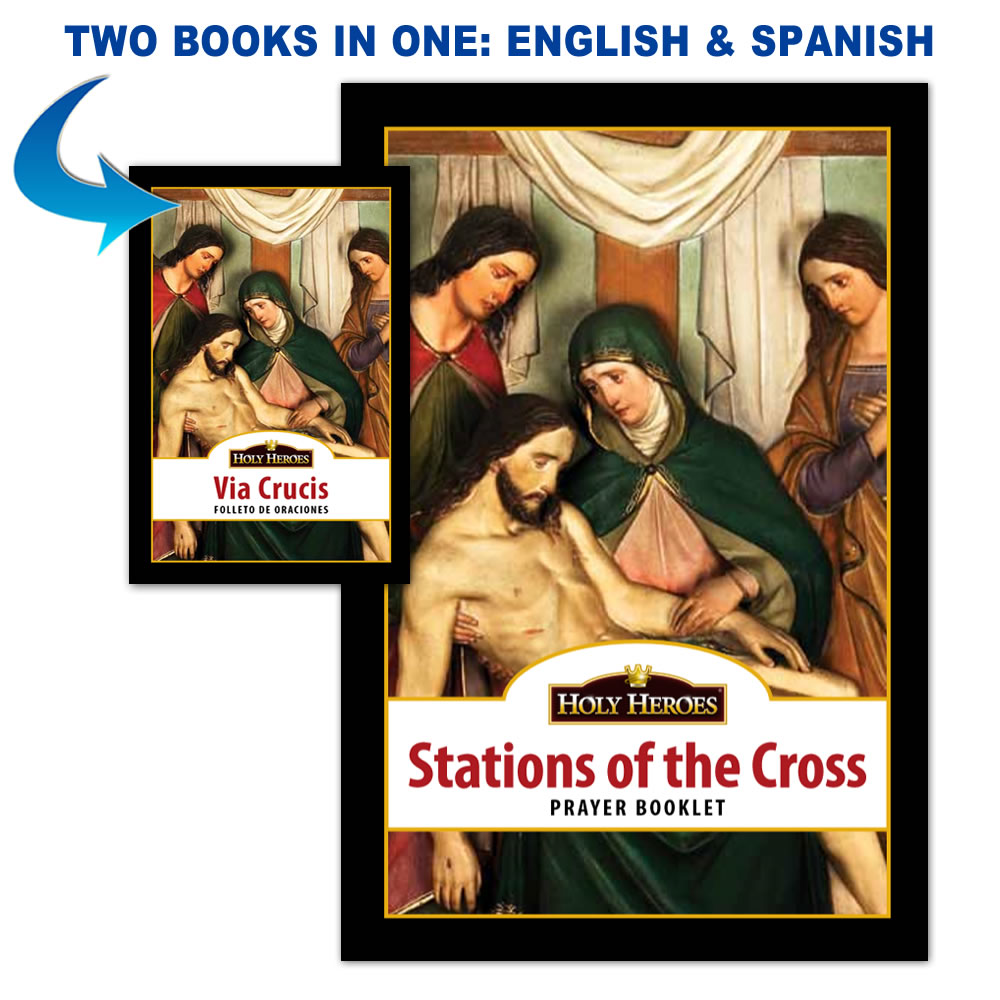


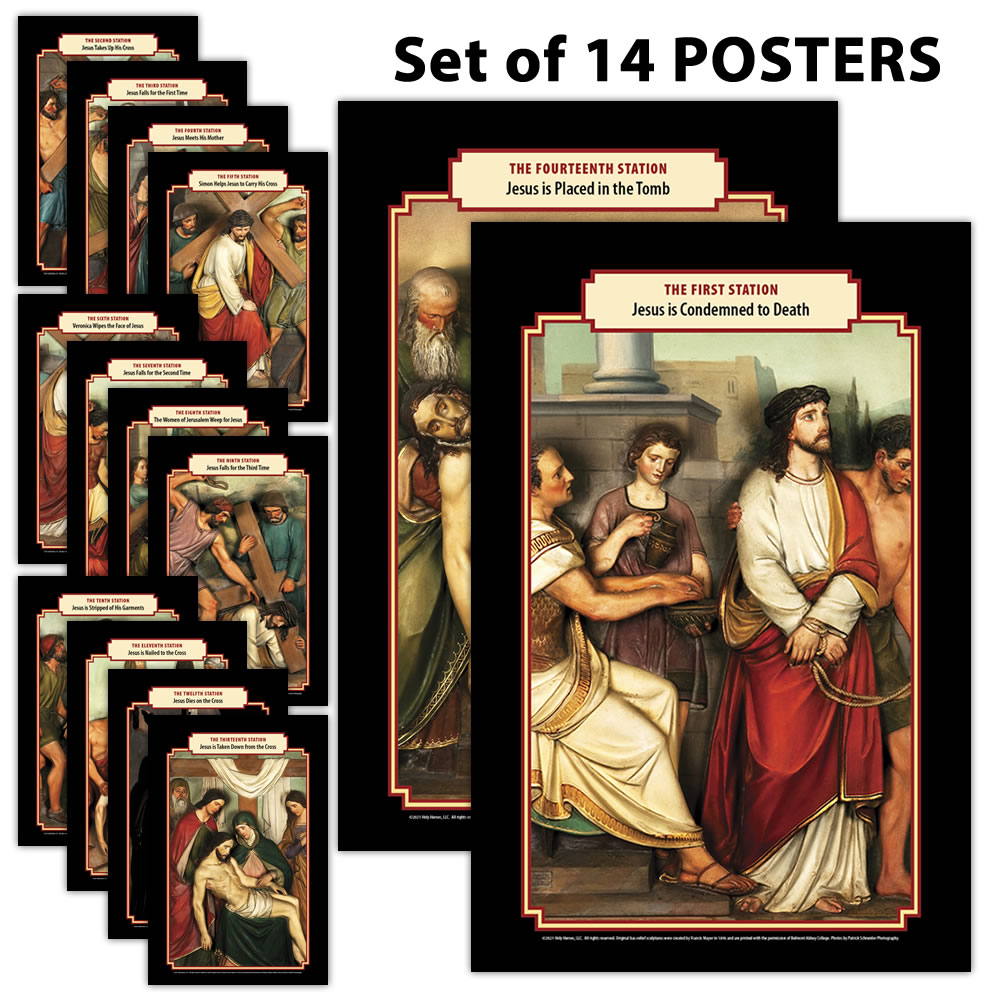
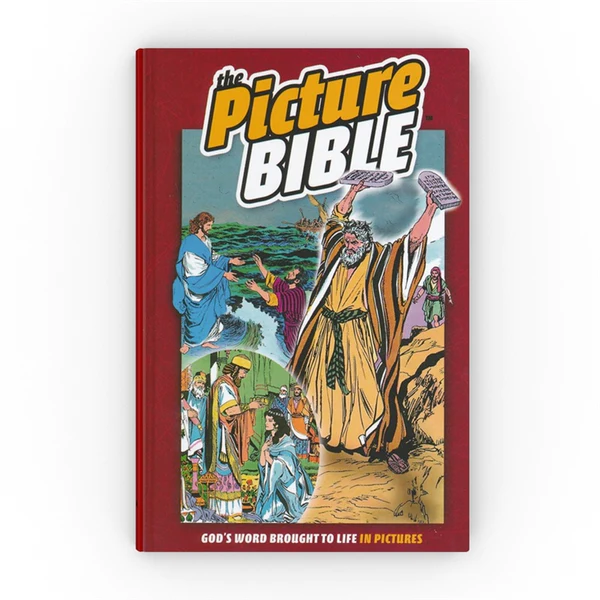

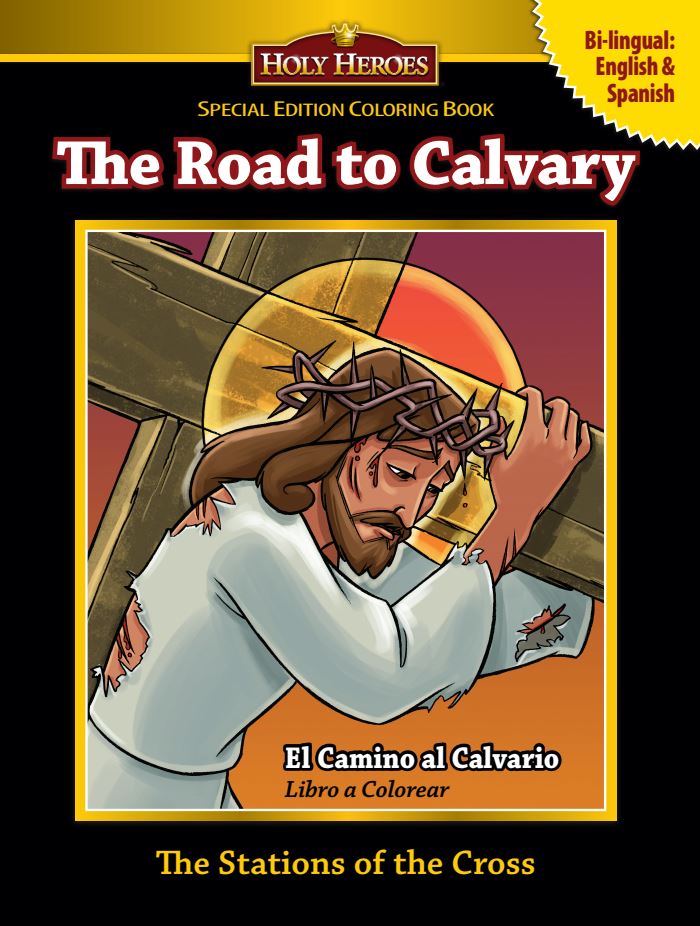
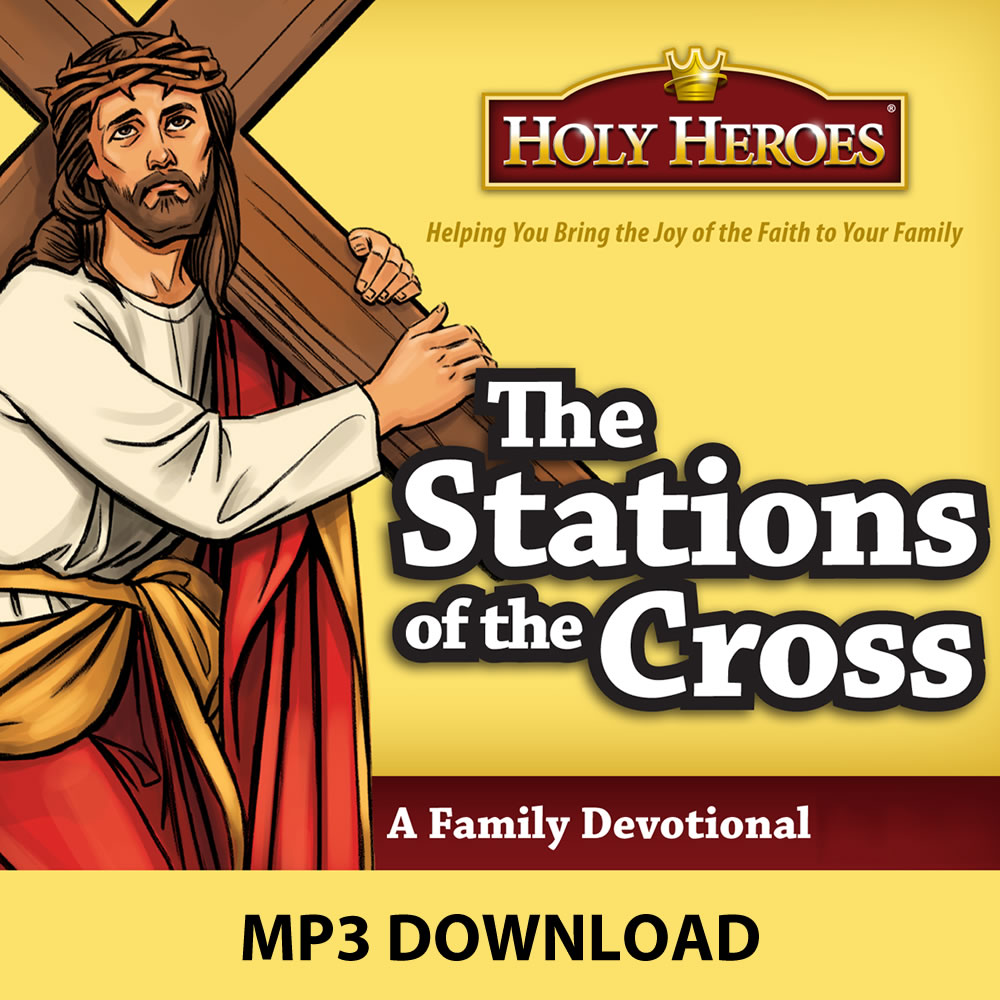
Ken, I just read this blog post and the creation accounts in Genesis came to mind wherein God created all the good he desired to fill the aching void. Maybe most profound was the void in Adam’s heart. God was moved to fill that with an absent good, too! Thank you so much for your words here. It is a profound reflection to read Genesis in view of this post. I’m starting to see the love that motivated all creation.
Ah–yes! Never considered Creation in that way. Thank you!
Hi Ken, I really like this article. It is very helpful for understanding how to be merciful. I just wonder, though, how bearing wrongs patiently and forgiving offenses willingly fit in with the idea of acting to take away someone’s suffering or evil. Any thoughts?
Thanks so much! I’d appreciate to hear from you.
Erin
One way to think about it is whether you are acting for the good of another person (to alleviate their suffering) vs accepting suffering for yourself. For yourself, you forgive injuries to yourself and bear wrongs done against yourself. You offer yourself as the victim like Christ. Other works of mercy are to act to relieve the suffering of others; you don’t offer up THEIR suffering to God, only your own suffering. So, you can willingly fast and be hungry or thirsty–but it is not virtuous to force others to go without food or water. Likewise, you can’t excuse your inaction when others are wronged (especially those for whom you bear a responsibility) by demanding that they bear wrongs patiently or forgive injuries done to them–works of mercy must be willingly and freely and personally accepted. Jesus fasted Himself, but he also fed those who were hungry.